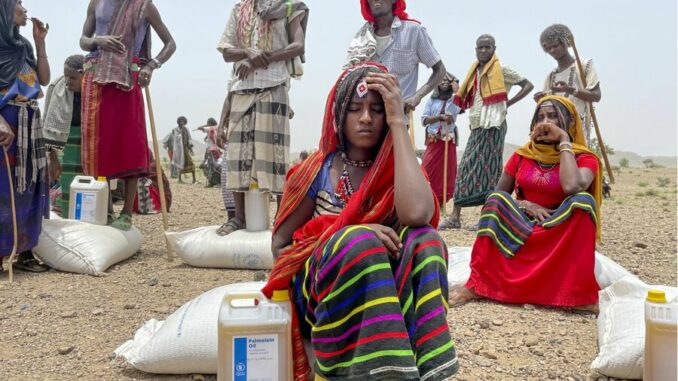
Sudan, South Sudan, Mali, Palestine and Haiti are rated among the most vulnerable areas globally where hundreds of thousands of people face or near famine, according to the latest six-monthly report by the United Nations’ food agencies.
The Hunger Hotspot report, released on 31 October, warned that conflicts, economic instability, and climate shocks — combined with reduced funding for emergency food and agriculture assistance — are driving alarming levels of acute food insecurity. In nearly two dozen countries and territories, including war-stricken Sudan, acute food insecurity is expected to worsen in the next six months, largely as a result of conflict and violence, it said, adding that “immediate, scaled-up intervention is needed to prevent further deterioration in these already vulnerable regions.”
Also Chad, Lebanon, Mozambique, Nigeria, Syria, Yemen, and Myanmar are classified as “hotspots of very high concern,” where large numbers of people are facing or are projected to face critical levels of acute food insecurity. “Conflict and armed violence continue to be the primary drivers of hunger in numerous hotspots, disrupting food systems, displacing populations, and obstructing humanitarian access,” the analysis by the UN’s Food and Agriculture Organization and World Food Programme has warned. To deal with the dire situation, the report calls for “immediate” and “scaled-up” assistance in hunger hotspots in order to protect livelihoods and improve access to food.
